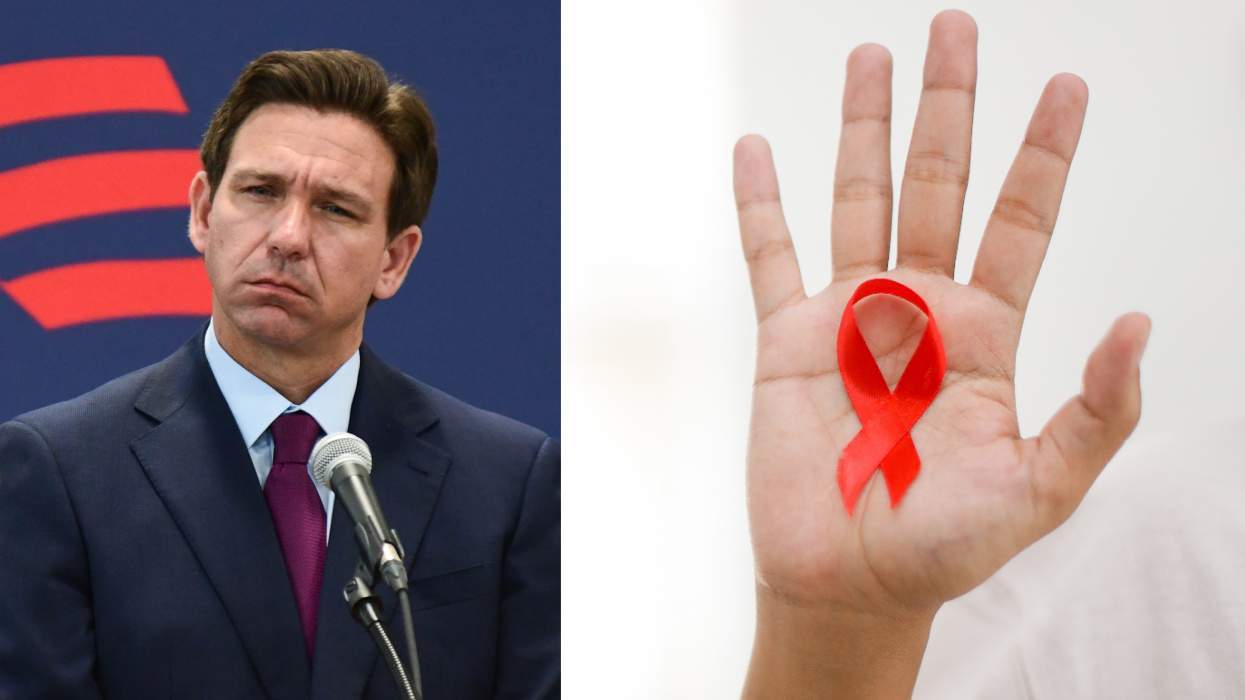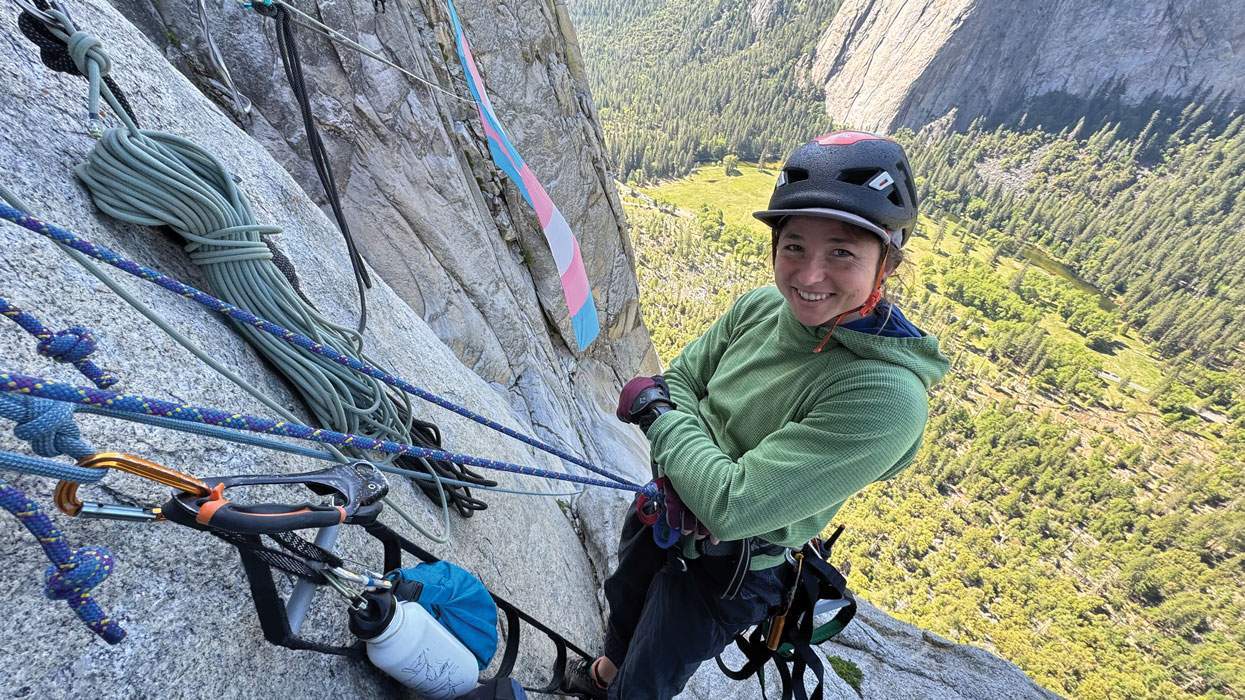Jan Morris, who died in November 2020 at 94, is best known as the courageous journalist who accompanied the first successful summit of Mount Everest.
Morris went on to write books and articles that guided readers through Wales, many other lands, the history of the British Empire, and her own gender transition. The acclaimed journalist, travel writer, and historian was as eloquent writing about the arc of history as she was the details of her life.
Assigned male at birth in 1926, she became aware of her true gender at a young age but felt she could do nothing about it until she met Dr. Harry Benjamin, a preeminent endocrinologist and an early advocate for social and medical gender transition. Under his advice, she began hormone treatments in 1964 and received affirmative surgery in 1972. She came out publicly two years later with the memoir Conundrum, which introduced many readers to the existence of transgender people.
Much of Morris's career success was prior to her transition, although she went on to publish an additional two dozen books in the second act of her life.
A British military (and intelligence) officer who served in World War II, Morris climbed three-quarters of the way up the world's highest peak to provide exclusive coverage, sending reports down the mountain to Katmandu. But she stopped short of the pinnacle, allowing Sir Edmund Hillary and Tenzing Norgay the honor of reaching the summit first.
She was particularly thrilled that her report on the successful summit reached England on the eve of Queen Elizabeth II's coronation. In an already diminishing empire, the news was celebrated as a national accomplishment.
Her journalism career continued as she covered earthquakes, wars, and revolutions (and interviewed those at the center of them, such as Che Guevara). As a travel writer she provided what The New York Times called "literary portraits" of the destinations she experienced, and she wrote critically acclaimed books like Pax Britannica, the first in a trilogy about the history of the British Empire.
Her most recent work was Thinking Again, a collection of diary installments, although a final book, Allegorizings, is to be published posthumously. In 2015, she joked to The Guardian that it would go to press "the minute I kick the bucket" and contains "nothing revelatory at all."
Morris was married and had five children before her affirmation surgery at age 46. In Conundrum, she wrote that her relationship with Elizabeth Tuckniss was, from the onset, an "open marriage, in which the partners were explicitly free to lead their own separate lives, choose their own friends if they wish, have their own lovers perhaps, restrained only by an agreement of superior affection and common concern."
Although she divorced her wife just before her operation (because it was illegal for two women to be married at the time), the two continued to live together until Morris's death. According to the Times, "In their house, Ms. Morris kept a gravestone that bore the inscription -- both in Welsh and English -- that was meant to be their future epitaph: 'Here are two friends, Jan and Elizabeth, at the end of one life.'"















Charlie Kirk DID say stoning gay people was the 'perfect law' — and these other heinous quotes
These are some of his worst comments about LGBTQ+ people made by Charlie Kirk.